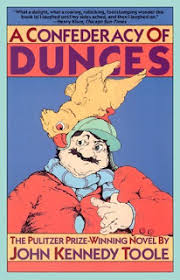
Episode 1, Chapeltown.
We all know what happened to Peter Sutcliffe, dubbed in the late seventies the Yorkshire Ripper, he was arrested in January 1981 and sent to Broadmoor the high-security psychiatric hospital in Berkshire, for thirteen murders and eight other attacks on women. Although we sometimes hear in the press of him getting fat or going blind with diabetes or being attacked by other inmates – I can’t remember, whether he’s alive or dead, and I guess like many others, I don’t really care – case closed.
Liza Williams re-opens the case and looks at it through a lens in which journalist Joan Smith sum it up as ‘a conversation among men about dead women’.
Listen, to example, this conversation between Michael Greene, a senior officer in the investigation of the murders and a prostitute in Moss Side in October 1977, when at least nine victims have been linked with the Ripper. A police operation costing an extra two million has been given to the police and 150 000 car number plates logged, 4000 cars a night on Moss Side alone.
Greene with a film crew approaches a prostitute on a street corner and asks,
‘Are you on the game?’
The prostitute replies, ‘Yes, I am.’
Greene replies, ‘Don’t you know that’s silly!’
This sounds like something from a Monty Python sketch, but nobody was laughing. You can have your own opinion, but you can’t have your own facts, is one response to today’s political shenanigans. There was no amnesty for prostitutes. Arrests of prostitutes increased even as the murders continued. The idea of arresting kerb-crawlers was deemed unrealistic and impractical.
The murder of sixteen-year-old Jane McDonald in Chapeltown on 26th June 1977, we were told changed the mood of the nation. Here was an ‘innocent victim’. There was an open letter from Jane McDonald’s mother printed in the mass media asking Sutcliffe to hand himself in. It followed his usual pattern, hitting the victim with a ball-peen hammer to render them unconscious or incapable or both and stabbing them with a screwdriver and molesting them. This was regarded as an honest mistake.
Prostitutes weren’t regarded as innocent. A fat women from Chapeltown summed it up for viewers, there were bad men she said, but bad women…were a different breed. Them and Us. Jane McDonald was one of us. Everyone else killed was a prostitute and one of them.
Ironically, it was women jurors in the 1950s and 1960s that were far more likely to acquit another serial killer, Peter Tobin, for crimes of molestation, assault and rape, because he was clean cut and the woman brought it on themselves.
Fourteen-year-old Mary Browne was attacked by Sutcliffe at Silsden farm before he began his serial-killing spree. He hit her over the head with a hammer, but a car came over a hill, which disturbed him and her flung her over a wall. She gave a description of him as a dark-haired, with a beard and dark, dark eyes. Later she went to the police, again, after another victim had an identikit sketch of the Ripper and told the officer it was the same guy that attacked her. She was told it couldn’t have been. He only attacked prostitutes was the narrative and the police were sticking to it, regardless of the evidence. Another survivor, a black woman with learning disabilities lost her child after the attack, her description of the attacker was a white man with curly hair and a beard, but she was told she was attacked by an unknown black man.
Joan Smith managed to get a copy of the ‘Special Notice’ issued to other police forces out with Moss Side and Leeds by the police forces dealing with the killer. It was a fishing operation, to find out if other police forces had anyone they might know that committed similar crimes on their patch. Smith noticed a term that kept cropping up in the ‘Special Notice’ was ‘loose morals’. Olive Smelt, for example, a mother that went out to drink in a local boozer, could not be classified as a prostitute, but she had ‘loose morals’ because she was not at home.
One of the first victims Wilma McCann’s son, Richard, who in 1975 was just a kid of five, appears in the programme. One of the things he noticed was the black-and-white photograph the mass media used of his mother, Wilma, made her look like Myra Hindley. For me that had resonance because in my unpublished novel (The Cruelty Man) one of the ways the press mocked the accused and inferred she was guilty was to make her look like Myra Hindley. Misogyny was meat and drink of the seventies cops and red-top newspapers. Innocent until you got your tits out for the boys. At least when we used to watch The Sweeney they got their man. Yet we know Sutcliffe was interviewed nine times by the police. Sutcliffe didn’t have to be very smart. The police just had to be incredibly dim.
The story Liza Williams tells isn’t a whodunnit, it’s a reconstruction of a different kind of misogynist crime, against women in general, in which women also play aid and abet the culprits. It’s a fair cop guv.




